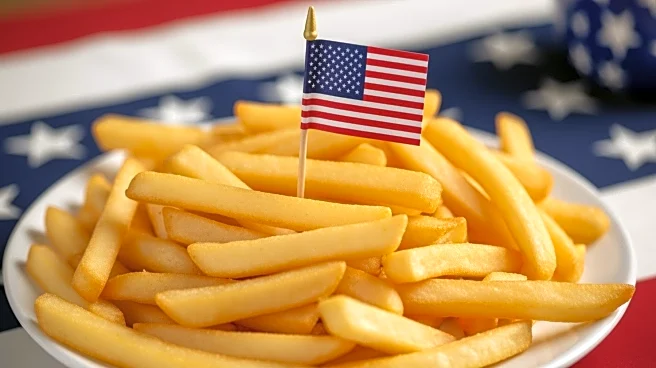What's Happening?
In 2003, Republican U.S. Representatives Bob Ney and Walter B. Jones directed the renaming of French fries to Freedom fries in three House cafeterias. This decision was made in response to France's opposition
to the U.S. invasion of Iraq. The renaming was intended as a symbolic gesture to express displeasure with France's stance. The action did not require a vote as Ney, the Chairman of the United States House Committee on House Administration, had authority over the cafeterias. The move was part of a broader trend where some U.S. restaurants also adopted the name change.
Why It's Important?
The renaming of French fries to Freedom fries highlights how political tensions can manifest in symbolic ways, reflecting broader cultural and diplomatic disputes. This act of renaming food items serves as a form of protest and illustrates the impact of international relations on domestic actions. It underscores the role of symbolism in political discourse and how it can be used to rally public sentiment against perceived adversaries.
What's Next?
While the name change was initially adopted by some restaurants nationwide, it was quietly dropped years later. The incident remains a quirky example of political symbolism, and it is unlikely to have lasting effects on U.S.-France relations. However, it serves as a reminder of how political actions can influence cultural practices.
Beyond the Headlines
The Freedom fries episode is part of a larger pattern of politically motivated food renaming, which has occurred throughout history during times of conflict. Such actions often reflect deeper cultural and nationalistic sentiments, and they can influence public perception and consumer behavior.










